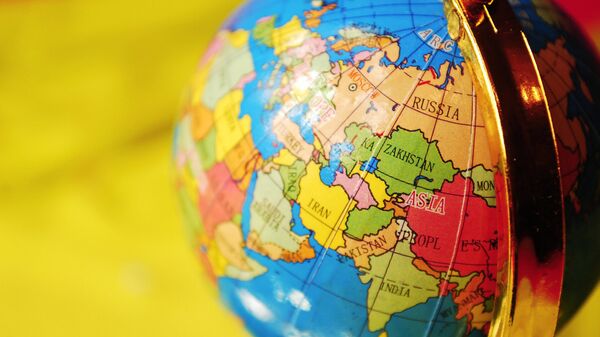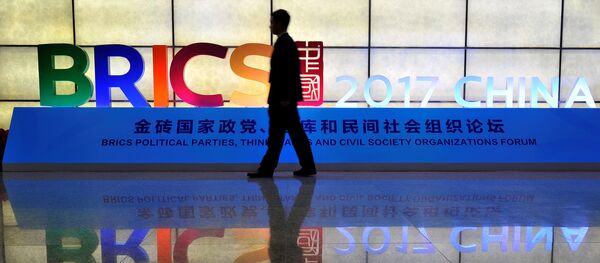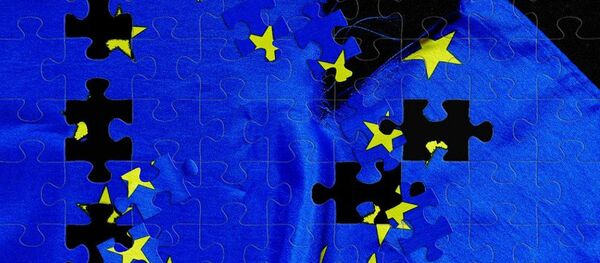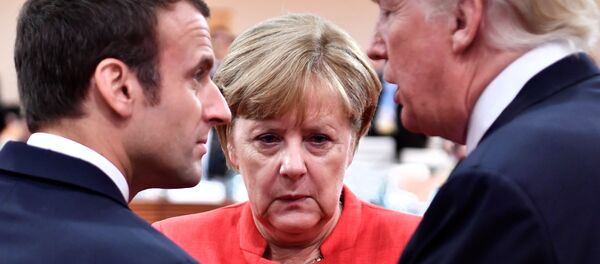In the world of politics, a power player is a capital city that is recognized as head of a national government or regional governing body, such as the European Union (EU).
Beijing, Moscow and Washington deserve immediate recognition as power players, since China, Russia and United States each have a strong military and game-changing diplomatic influence. They hold full control of their destinies, meaning they can enact laws without interference from outside forces, including foreign governments.
Knowing the Qualifiers
A power player must rule over its military without reliance on allies. Hence, Tokyo cannot be listed since the nation must abide by a Constitution that prevents them from having a self-sufficient army. Additionally, Seoul needs Washington's military presence for protection from Pyongyang.
But what about Berlin or London? No: Brussels is recognized as head of the EU and can impose its will on member states and therefore Brussels is one of the '5 Powers.'
Although London voted in favor of Brexit, departure from EU, it is yet to be seen if the United Kingdom will divorce from Brussels' and doubters believe London will not break free with a hard Brexit.
But if London succeeds in Brexit, we can list them as one of the '5 Powers' and de-list New Delhi from the league.
Washington's Self-inflicted Wounds
What's intriguing about the '5 Powers' is that four of them share borders. Beijing is Moscow's southern neighbor and the EU its western one. New Delhi and Beijing sit next to each other.
But, Washington is separated by two major oceans and the geographical divide could explain the American spirit that demands other governments support democracy, human rights and globalist principles that have been endorsed by former US Presidents, such as Barack Obama.
The vast oceans protect Americans from frequent invasions and so they feel emboldened as a superpower to go on the offensive and historically such efforts were successful. The US Army played crucial roles to help end World Wars I and II.
Nonetheless, success breeds arrogance and Washington had been headed down the path of folly, but with President Trump in the White House and his pledge to move forward on 'America First' policies, we may witness a paradigm shift that allow the other '4 Powers' to rise in global influence to coincide with the decline of Washington's global influence.
Re-balancing the Balance
Ironically, many heads of state in European countries are fierce critics of US President Trump, but whether the EU likes it or not, Brussels will stay closely aligned with Washington, while working in tandem to serve as protectors of developed nations in Western Europe, North America and Oceania.
Such moves allow Moscow, along with Beijing, to enjoy greater influence with developing nations, (BRICS [Brazil, Russia, India, China and South Africa], Latin America and Africa), and Central Asia. Moscow also has a bigger voice over Middle East affairs with its military presence in Syria.
But let's be serious, Beijing is unlikely to transform into Brussels-style governance by enacting democracy and the China-EU alliance does not appear on the horizon.
New Delhi on the Block
On account of the recent China-India border standoff and the rising popularity of Indian Prime Minister Narendra Modi, New Delhi has emerged as one of the '5 Powers,' but they must continue to fight for respect.
New Delhi has a strong patriotic leader, but the country's rampant corruption and slow reform process could hinder its rise to greatness.
Accordingly, interesting times lay ahead when observing the '5 Powers' and how they will play the global diplomacy game.
Will Washington lessen its grip on a globalist agenda? Or revert back to its old ways? Will Brussels side more with Washington or shift towards alliances with Beijing and Moscow? Will New Delhi maintain its status as one of the '5 Powers' or will London replace them?
Well, let's wait and see what happens today, tomorrow and in the long-term future.
By Tom McGregor, CCTV.com commentator and editor, based in Beijing
The views expressed in this article are solely those of the author and do not necessarily reflect the official position of Sputnik.




